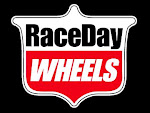
A column I wrote for the AFN
Motivation is the one thing all athletes need in order to succeed. After pushing through the pain and agony of finishing the 2008 P.F. Chang’s Rock ‘n’ Roll Arizona Marathon Jan. 13 with a personal best time of 3:25:33, not to mention the miserable week or so I spent hobbling around afterwards, I have to admit I was in need of a little motivation to get moving again.
In fact, I knew I would need a push because, honestly, I always do after big race. So when I saw the preview for Spirit of the Marathon in December, I bought tickets online as soon as my fingers could reach a keyboard.
Spirit of the Marathon is a non-fiction documentary that follows six individuals through their journey to complete the 2005 La Salle Bank Chicago Marathon. The movie played around the country at select theaters Jan. 24 at 7:30 p.m. local time.
I’ve ran four marathons in the past year and a half, not to mention five half marathons and numerous sprint and half-iron distance triathlons, so I didn’t expect to get emotional over something I’m exposed to so often. But as soon as the movie started, just scenes of runners on the boardwalk in Chicago made me start to tear up.
Two of the contenders, Leah Caille and Lori O’Connor, were first-time marathoners. Big deal, I thought, been there done that. Who really caught my eye and motivated me to see the movie were 2004 Olympic bronze medalist Deena Kastor and world-class marathoner Daniel Njenga of Kenya.
These two people inspired me. Both Kastor and Njenga’s goals were to win the marathon, and the documentary took us through their training process.
At one point, when Kastor was lying on a massage table stretching, she told the camera she had run 145 miles that week. I immediately did the math in my head – that averages out to at least 20 miles a day. How does someone who runs that much prevent injury? But sure enough, Kastor soon suffered a foot injury.
Last spring I suffered from Achilles tendenitous because I picked up my weekly mileage too fast when training for the Rock’n’ Roll San Diego Marathon. I was a baby - the bike and elliptical machine became my best friends and I complained about my injury non-stop. Turns out I just needed new shoes. Kastor took eight weeks off training on the road, aqua jogged, biked and kept a positive attitude. She went on to win the marathon. I guess injuries aren’t the end of the world.
This year at Rock ‘n’ Roll Arizona I was chosen as a local favorite. I got to wear a red bib and was assigned a number under 1,000. This was exciting and made me feel special; however, this also meant I had to start the race up in front – next to the Kenyans and Ethiopians.
Just two weeks ago as I stood next to these elite runners I looked at them in awe. I was jealous of how fast they could run and the glory they feel crossing the finish line knowing they are the best in the world.
Daniel Njenga is a native of Kenya. He lives and trains in Japan, but the documentary took us to his hometown of Nyahururu and showed life isn’t so peachy for these elite runners.
Njenga said by the time he was seven years old he could run 10 miles. When I was seven years old I was playing with barbies and worrying about how the braids in my hair looked. Njenga ran five miles to school and five miles home each day.
Winning marathons has its financial benefits, and Njenga taught me that it also has its downfalls. A few years ago his nephew and sister-in-law were killed, and his house was burned down by jealous gangs from his hometown. Now, Njenga dedicates himself and his money to providing for his family and assuring their safety. He placed third at the marathon.
After watching Kastor and Njenga finish I found myself itching to see when the other contenders would cross the line. I watched as 65-year-old Gerald Meyers finished in over six hours and realized it doesn’t matter how fast people finish, just finishing a marathon is a feeling incomparable to any other.
And so I got out of this movie more than what I asked for. I am motivated now in more ways than one. The marathon is something that brings the world together. Thousands of people of all races, classes, genders and ages take on this challenge year-round. The Kenyans, Ethiopians and elites win, and we follow in their footsteps, all bound for the same feeling of accomplishment and glory waiting for us at mile 26.2.
Motivation is the one thing all athletes need in order to succeed. After pushing through the pain and agony of finishing the 2008 P.F. Chang’s Rock ‘n’ Roll Arizona Marathon Jan. 13 with a personal best time of 3:25:33, not to mention the miserable week or so I spent hobbling around afterwards, I have to admit I was in need of a little motivation to get moving again.
In fact, I knew I would need a push because, honestly, I always do after big race. So when I saw the preview for Spirit of the Marathon in December, I bought tickets online as soon as my fingers could reach a keyboard.
Spirit of the Marathon is a non-fiction documentary that follows six individuals through their journey to complete the 2005 La Salle Bank Chicago Marathon. The movie played around the country at select theaters Jan. 24 at 7:30 p.m. local time.
I’ve ran four marathons in the past year and a half, not to mention five half marathons and numerous sprint and half-iron distance triathlons, so I didn’t expect to get emotional over something I’m exposed to so often. But as soon as the movie started, just scenes of runners on the boardwalk in Chicago made me start to tear up.
Two of the contenders, Leah Caille and Lori O’Connor, were first-time marathoners. Big deal, I thought, been there done that. Who really caught my eye and motivated me to see the movie were 2004 Olympic bronze medalist Deena Kastor and world-class marathoner Daniel Njenga of Kenya.
These two people inspired me. Both Kastor and Njenga’s goals were to win the marathon, and the documentary took us through their training process.
At one point, when Kastor was lying on a massage table stretching, she told the camera she had run 145 miles that week. I immediately did the math in my head – that averages out to at least 20 miles a day. How does someone who runs that much prevent injury? But sure enough, Kastor soon suffered a foot injury.
Last spring I suffered from Achilles tendenitous because I picked up my weekly mileage too fast when training for the Rock’n’ Roll San Diego Marathon. I was a baby - the bike and elliptical machine became my best friends and I complained about my injury non-stop. Turns out I just needed new shoes. Kastor took eight weeks off training on the road, aqua jogged, biked and kept a positive attitude. She went on to win the marathon. I guess injuries aren’t the end of the world.
This year at Rock ‘n’ Roll Arizona I was chosen as a local favorite. I got to wear a red bib and was assigned a number under 1,000. This was exciting and made me feel special; however, this also meant I had to start the race up in front – next to the Kenyans and Ethiopians.
Just two weeks ago as I stood next to these elite runners I looked at them in awe. I was jealous of how fast they could run and the glory they feel crossing the finish line knowing they are the best in the world.
Daniel Njenga is a native of Kenya. He lives and trains in Japan, but the documentary took us to his hometown of Nyahururu and showed life isn’t so peachy for these elite runners.
Njenga said by the time he was seven years old he could run 10 miles. When I was seven years old I was playing with barbies and worrying about how the braids in my hair looked. Njenga ran five miles to school and five miles home each day.
Winning marathons has its financial benefits, and Njenga taught me that it also has its downfalls. A few years ago his nephew and sister-in-law were killed, and his house was burned down by jealous gangs from his hometown. Now, Njenga dedicates himself and his money to providing for his family and assuring their safety. He placed third at the marathon.
After watching Kastor and Njenga finish I found myself itching to see when the other contenders would cross the line. I watched as 65-year-old Gerald Meyers finished in over six hours and realized it doesn’t matter how fast people finish, just finishing a marathon is a feeling incomparable to any other.
And so I got out of this movie more than what I asked for. I am motivated now in more ways than one. The marathon is something that brings the world together. Thousands of people of all races, classes, genders and ages take on this challenge year-round. The Kenyans, Ethiopians and elites win, and we follow in their footsteps, all bound for the same feeling of accomplishment and glory waiting for us at mile 26.2.











1 comment:
What were some of the emotions felt by the Marathoners that you could pass on to us? What do you feel is the greatest hurdle to overcome while finishing a marathon? What is your motivation?
Post a Comment